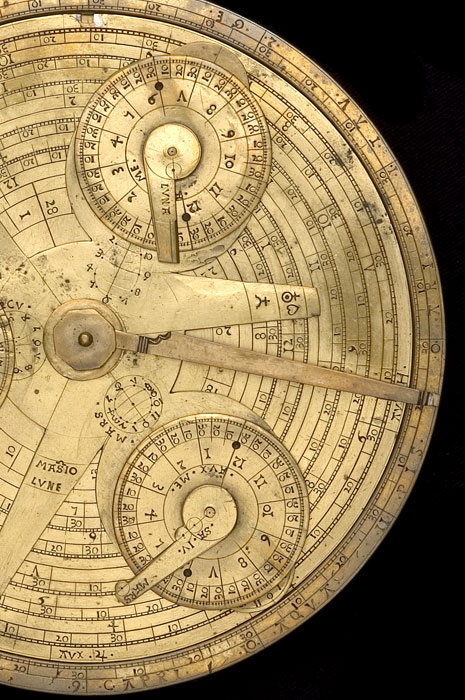Then burn thy Epicycles foolish man;Break all thy spheres and save thy head.Faith needs no staffe of flesh, but stoutly canTo heav'n alone both go and leade.Excerpt from "The Temple", George Herbet, 1638
Epicycles are an example to me of a glorious error. Most errors in life are typically embarassing, ugly or cringe-worthy (dropping the ice cream off the cone, stepping in a dog pile, calling an old friend by the wrong name). But the constructs of epicycles (the geocentric attempt at explaining retrograde planetary motion) are gorgious and stunning. Wrong, yes, but beautiful. Even poem worthy! Thank you very much Mr. Herbet.
Prior to a heliocentric model of the cosmos, astronomers had a very difficult time explaining the wandering (retrograde) motion of the planets in the sky with respect to other stars. The wriggle and wobbly path that planets took did not neatly conform to the perfect, spherical ideals of geocentrism. Enter epicycles.

In order to fit the wandering retrograde motion of a planet into the concept that the heavens are perfect and, therefore, in perfectly circular orbits, Ptolemy assigned planetary motions to smaller circles attached to a larger circle. As shown in the animation above from the Natural Sciences 102 course at the University of Arizona, this epicycle motion does, in fact, yield circular motions with a wiggle to an observer on earth. The problem is that epicyle-calculated planet motions do not precisly match accurate observations.
But it is such a beautiful error. This 15th century astrolabe makes me practically wish for epicycles to be true, just so these instruments could be in common use and production today.

15th Century Astrolabe, from the Museum of the History of Science, Oxford.
When a simple epicycle did not accurately describe retrograde motion then epicycles were placed into epicycles. And the erroneous system became complicated. Wonderfully so. Ptolemy's Almagest in which he outlines his concept of epicycles is fantastically detailed, highly analytical and gorgeously wrong.
I hold a weepy nostalgia for compendia. And certainly I do for the epicycles and this astrolabe. Not for the error of the system, but for the beauty of the error.










When people work from a premise, they can do a fabulous job of justifying that premise, even if it is desperately erroneous. In many ways, the scientific process is in place to preclude these kinds of errors. But this is not just an ancient phenomenon.
ReplyDeleteIt is maddening for me to see genius expended to validate faulty premises, to argue them with facts. If the premise "can't" be false, it's too easy for even the brightest to delude themselves.
I am, perhaps, less tolerant than you of it. I see this too often and the errors I often see have a human price tag (and often it's not the believer paying it). Intellectually, I can respect the genius behind the delusion; in reality, it's incredibly frustrating.
I agree Stephanie that the popular market value of "disprovability" certainly seems to have taken a dive along with Enron stock.
ReplyDeleteI get equally frustrated when people are too heavily invested in a body of work to allow for contradictory evidence. For many it's not an option to hold multiple, parallel hypotheses.
I was wearing my artistic hat when writing this post and admiring the craft surrounding epicycles. But "fashion" certainly isn't a strong suit on my resume!
The instrument IS a thing of great beauty.
ReplyDeleteBy the way, I will get to your first chapter later today. I'm working from home and wrangling kids and stuff. But TODAY, I promise.
ReplyDeleteLooking at it from a Christian perspective, it's notable that the reticence to admit a theory that seems contrary to your prior beliefs might be true works both ways. On the one hand, heliocentrism was resisted because it seemed to contradict Scripture. But then more recently, the Big Bang theory was resisted (in favor of an eternal, static universe) by some materialist scientists because of its seeming implication that the universe isn't eternal.
ReplyDeleteStephanie, thanks a truckload for taking a look!! No rush or hurry, please.
ReplyDeleteMichael, I've always been interested in the social parallels to physical laws. What you're talking about seems to be mental inertia where people just don't want to move their thinking once it comes to rest. I think that it is a human condition both in the secular and religious world. In matters of faith and science. It requires force to change a deeply held belief/theory and there is a usually a reaction and push back when that force is applied.
Glad that you're popping in to TSON and I hope to hear more from you.